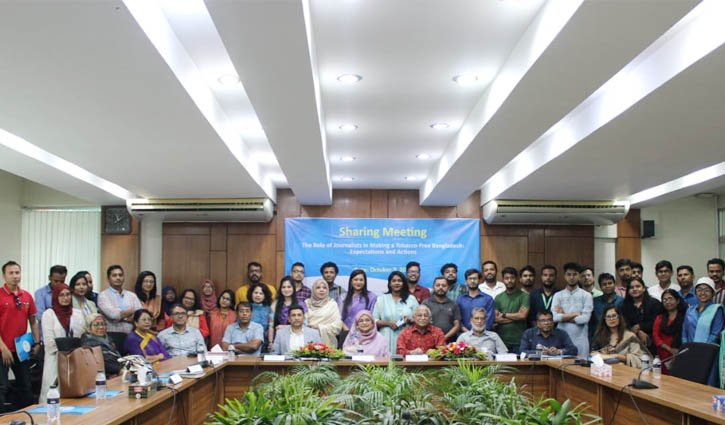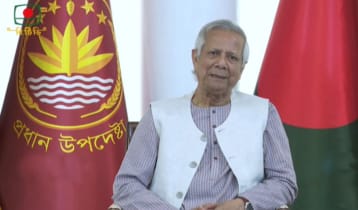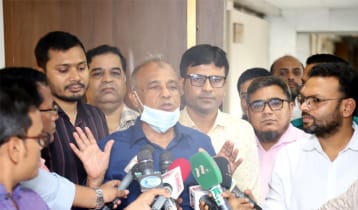Journalists demand swift passage of amendments to tobacco control law
Desk Report || risingbd.com

Nari Maitree, a leading non-governmental development organization, organized a pivotal roundtable discussion meeting "The Role of Journalists in Making a Tobacco-Free Bangladesh: Expectations and Actions" aimed at addressing urgent amendments to the tobacco control law and to encourage effective action from journalists in controlling tobacco use.
The event, held on Wednesday (9 October), at Bishwo Shahitto Kendro, provided a platform for key stakeholders to engage in a thoughtful dialogue on this critical issue.
Shaheen Akter Dolly, Executive Director of Nari Maitree, presided over the session, lending her expertise in advocating for women's rights and public health, thereby bringing valuable insights to the discussions, said a press release.
Featured distinguished guest speakers Professor Dr. Golam Mohiuddin Faruque, an oncologist and President of the Bangladesh Cancer Society, and Md. Mostafizur Rahman, Lead Policy Advisor for the Campaign for Tobacco-Free Kids (CTFK), Bangladesh, and former Chairman of BCIC. Their expertise added valuable insights into the ongoing efforts to control tobacco use in Bangladesh.
The special guests included several distinguished personalities from various media backgrounds, notably Rashed Rabbi, President of the Health Reporters Forum; Shamim Mehedi, Chief Executive Officer of Global TV; Sohrab Hasan, Joint Editor of Prothom Alo; Shahnaz Begum Polly, Member of the Executive Committee of the National Press Club; and Zulhas Alam, Dhaka Bureau Chief of the New York-based international news agency Associated Press (AP) and member of the Executive Committee of the National Press Club.
The main presentation was delivered by Nasrin Akter, Project Coordinator at Nari Maitree, highlighting critical issues concerning youth addiction to e-cigarettes. Suggestions were put forward, including halting the manufacturing of e-cigarettes, discontinuing single-stick cigarette sales, and amplifying health-conscious imagery on tobacco product packaging.
Sushanta K Sinha warned against the misleading tactics of tobacco companies, highlighting the Ministry of Health's timely and public-friendly initiative to amend the tobacco control law. He urged caution as the law awaits approval, with potential obstacles from tobacco companies spreading false information.
Rashed Rabbi pointed out that the cost of treating tobacco-related diseases is 34% higher than the revenue generated from tobacco, making stronger laws essential.
Sohrab Hasan stressed the urgent need to strengthen tobacco control laws to prevent more lives from being lost to tobacco's harmful effects.
Shamim Mehedi emphasized the increasing addiction to e-cigarettes among youth and the importance of stopping their marketing.
Mostafizur Rahman highlighted the deadly impact of tobacco, with 161,000 deaths annually in Bangladesh, and urged the media to play a key role in pushing for stronger tobacco control laws.
Professor Dr. Golam Mohiuddin Faruque stated, "Tobacco is responsible for nearly one-third of all cancer-related deaths worldwide, significantly increasing the risk of lung, pancreatic, and oral cancers. Controlling tobacco use is critical to reducing these risks. Bangladesh was among the first countries to sign the World Health Organization's Framework Convention on Tobacco Control (FCTC). However, the latest WHO report on the global tobacco epidemic indicates that Bangladesh still falls short of the highest standards in banning smoking in public places and prohibiting tobacco advertising and incentives. Therefore, it is essential to swiftly pass and strengthen the proposed amendments to the tobacco control law to create a healthier, tobacco-free Bangladesh."
Shaheen Akter Dolly emphasized, "Tobacco is extremely harmful to health. In Bangladesh, around 38.4 million people are exposed to secondhand smoke each year, with women and children being the most affected. Passing the amended tobacco control law is essential to protect the health of women and children from the dangers of secondhand smoke. Secondhand smoke leads to a reduction in women's reproductive health, increased miscarriage rates, and fatalities in both mothers and children during childbirth. We strongly urge for the swift passage of the proposed tobacco control law amendments to protect the health of women and children."
Other speakers also called for the urgent passage of the tobacco control law amendments to achieve a tobacco-free Bangladesh. They emphasized the need to align the existing tobacco control law with FCTC guidelines, which include eliminating designated smoking areas in all public places and public transport to protect non-smokers, banning the display of tobacco products at retail outlets, prohibiting corporate social responsibility activities by tobacco companies, banning the import, production, use, and marketing of e-cigarettes and emerging heated tobacco products, ending all forms of loose and retail tobacco sales, and increasing the size of graphic health warnings from 50% to 90%.
The session witnessed impassioned calls from various media representatives and journalists urging for stronger laws against tobacco, advocating for smoke-free environments, and promoting gender-sensitive measures in combating tobacco-related challenges.
Nari Maitree remains committed to championing public health initiatives and looks forward to the fruition of these discussions leading to strengthened tobacco control laws for a healthier society.
N H/Nasim


















